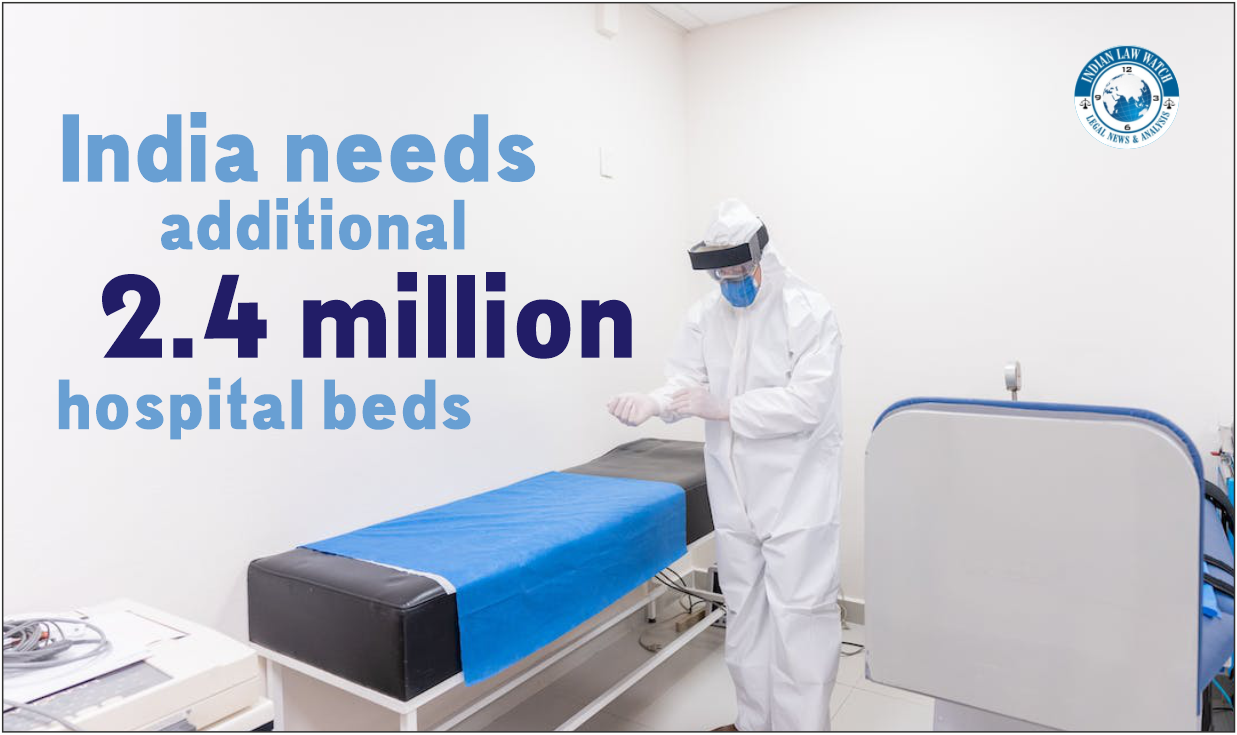

Factors such as the gradual rise in an ageing population, increasing per capita incomes, growing health awareness and the penetration of health insurance drive the demand for the healthcare industry in India.

-
India needs an additional 2.4 million (24 lakh) hospital beds to reach the recommended ratio of 3 beds per 1,000 people, fuelling the demand for healthcare-related real estate space, according to Knight Frank. Currently, India has an estimated 70,000 hospitals, of which 63 per cent are from the private sector, global real estate consultant Knight Frank and US-based Berkadia said in their report released on Thursday.
-
“India is facing a deficit of 2 billion sq ft of healthcare space to cater to its current population base of 1.42 billion people,” Knight Frank India said in a statement. India has a considerable gap between the number of hospital beds available in the country and the number of hospital beds required. India has a considerable gap between the number of hospital beds available in the country and the number of hospital beds required. “India’s existing bed-to-population ratio is 1.3/1000 population (both private and public hospitals included), and there is a deficit of 1.7/1000 population. To cater to the existing population, there is an additional requirement of 2.4 million beds,” the consultant said.
-
This disparity provides an opportunity for public and private players, to expand their footprint in the healthcare industry in India. “The challenge of India’s population-to-bed ratio, coupled with increasing population, underscores the pressing need for significant enhancement in the country’s healthcare infrastructure,” Shishir Baijal, Chairman and Managing Director of Knight Frank India, said. “Addressing this demand necessitates nearly doubling the current real estate capacity to adequately meet the expanding healthcare requirements of the population,” he added.
-
After the pandemic, the consultant said healthcare ranks amongst the mainstream avenues for investors looking for investments in long-income-generating assets. The report highlighted that India’s healthcare market was estimated to be worth USD 372 billion in 2022, a significant growth from USD 73 billion a decade ago (in 2012). “At this level and pace, India’s healthcare industry has grown at an annual average rate of 18 per cent,” it said. India’s healthcare market primarily comprises hospitals, pharmaceuticals, health insurance and medical technologies. The hospital industry accounts for 80 per cent of the healthcare market in India.
-
Factors such as the gradual rise in an ageing population, increasing per capita incomes, growing health awareness and the penetration of health insurance drive the demand for the healthcare industry in India. Additionally, there has been a growing incidence of lifestyle diseases in India led by cardiovascular diseases, which will heighten the demand for specialised healthcare. “India is emerging as one of the most affordable healthcare destinations in the world providing quality medical procedures at a relatively cheap cost. In the pre-pandemic years between 2014 and 2019, the inflow of foreign tourist arrivals on medical visa grew at a CAGR of 30 per cent,” the report said.
Source:MoneyControl





